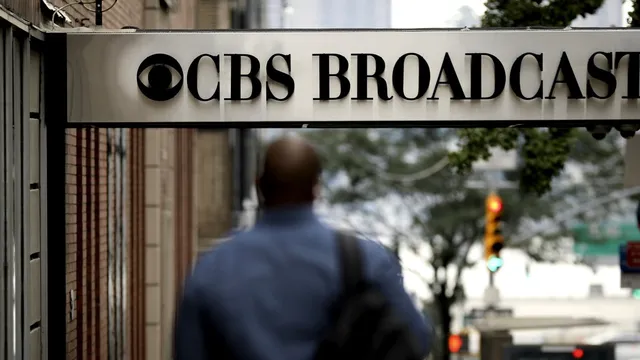
Trump claims mental anguish from CBS News interview editing
2025-05-31 17:41- Donald Trump has filed a $20 billion lawsuit against CBS News, claiming the network's editing misrepresented Kamala Harris's responses.
- Tensions surrounding the lawsuit led to the resignation of senior CBS News executives who opposed settling.
- Critics argue that Trump's claims lack merit and that editing in journalism is a routine practice protected by the First Amendment.
Express your sentiment!
Insights
In Texas, President Donald Trump filed a $20 billion lawsuit against CBS News, alleging that the network's editing of a '60 Minutes' interview with Democratic opponent Kamala Harris caused him mental anguish. Trump's legal team argued that the way the interview was edited distorted Harris's responses, misled voters, and damaged Trump's status as a content creator. Tensions over this lawsuit have led to resignations among CBS News executives, as they opposed the idea of settling with Trump, believing it undermined journalistic integrity. As discussions continued, CBS News executives resigned from their positions in protest of a potential settlement with Trump. As a result, Paramount Global, CBS's parent company, has been involved in settlement discussions with Trump while also seeking to dismiss the case in court. Trump's lawyers, Edward Andrew Paltzik, emphasized that viewers experienced widespread confusion due to the alleged deceptive editing by CBS, claiming that it forced Trump to invest significant time and resources into correcting public misconceptions. Critics have challenged the validity of Trump's claims, pointing out that routine editing in news media does not constitute legal wrongdoing under First Amendment protections. The editing in question featured excerpts of Harris's answers that had originally appeared in a longer format on CBS's other programming. Trump's lawsuit, thus, is seen by many as an unfounded attempt to silence critical media coverage.
Contexts
The impact of media editing on public perception is a crucial area of study, especially in today's information-saturated environment. With the advent of advanced editing technologies, the manipulation of media is easier than ever, leading to potential distortions in how information is relayed to the public. This alteration can happen through selective editing, where certain aspects of a story are highlighted while others are downplayed or omitted altogether, thereby shaping the narrative presented to viewers. This is particularly concerning in journalism, where the integrity of information is paramount. The results of such edits can influence public opinion, alter perceptions of events, and even affect political outcomes. The credibility of news outlets is often called into question when consumers are exposed to edited material that can mislead or misrepresent the facts surrounding an issue or event. Research has shown that edited media can significantly sway public perception by preferring certain viewpoints over others. This bias can contribute to the polarization of opinions among the audience, reinforcing pre-existing beliefs. For example, in politically charged environments, edited footage can portray candidates in an unfavorably light or can exaggerate the severity of social issues, thus fuelling division amongst the electorate. Moreover, the blurring of lines between fact and opinion through edited content poses a challenge to critical thinking skills, compelling audiences to accept information uncritically. As people increasingly rely on digital media for news, understanding the nuances of editing and its implications is vital for consumers. Beyond traditional news media, social platforms have also become breeding grounds for manipulated content as algorithms promote sensationalism over accuracy. The spread of edited or ‘deepfake’ videos is an illustration of this trend, where highly sophisticated techniques create realistic but false representations of individuals. This raises ethical questions about misinformation and the potential consequences on trust in media. The ability for users to share such content exacerbates the risk of reputational damage to individuals while also undermining the democratic process if such materials influence public sentiment during critical periods like elections. It emphasizes the essential role of media literacy and critical analysis skills among the public. To mitigate the adverse effects of media editing, comprehensive media literacy programs are warranted, equipping individuals with the skills to discern between edited and unedited content. Furthermore, media organizations need to adhere to ethical guidelines in their editing practices to preserve credibility and public trust. Promoting transparency in editing processes can help audiences understand the intentions behind media presentation. Ultimately, acknowledging the power that media editing holds over public perception is fundamental to fostering an informed citizenry capable of engaging critically with the media landscape.